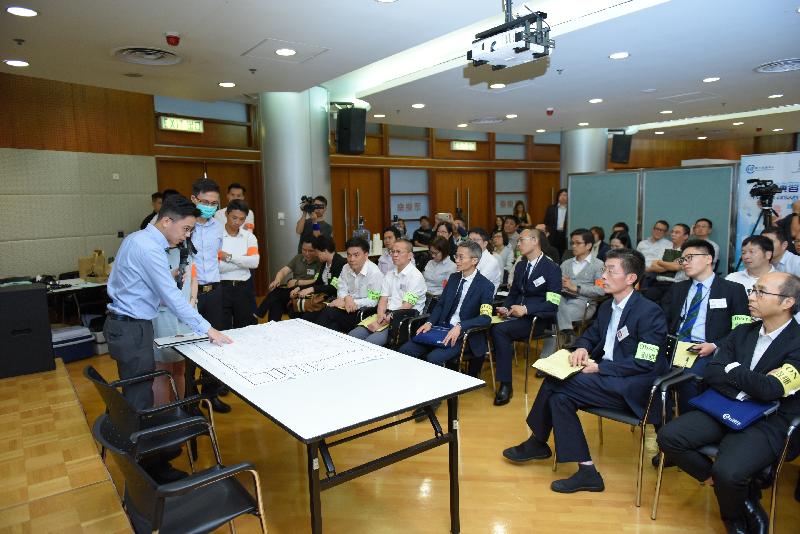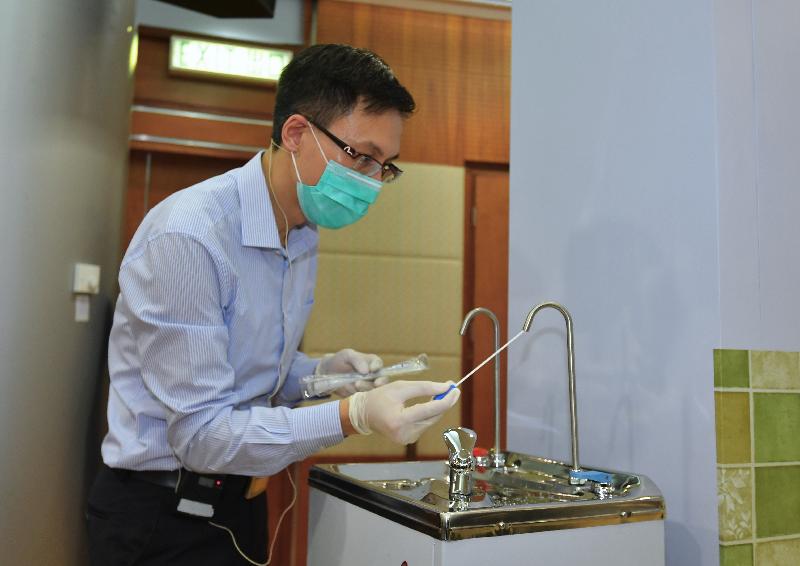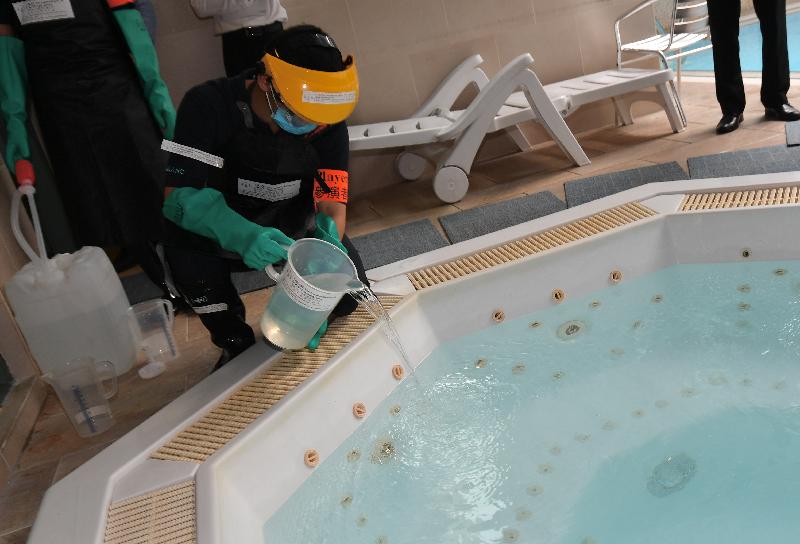Exercise “Zircon” tests Government’s response against Legionnaires’ Disease (with photos)
The Centre for Health Protection (CHP) of the Department of Health (DH), in collaboration with other government departments and organisations, today (April 30) held a public health exercise code-named "Zircon" to test the preparedness against Legionnaires’ Disease (LD).
The exercise was conducted in a purpose-built housing block for the elderly and aimed at strengthening the inter-departmental response and collaboration mechanism in regard to the occurrence of LD, evaluating the effectiveness of the DH’s standard operating procedures on LD, and enhancing awareness among stakeholders on the prevention and control of an outbreak of LD.
About 50 people from relevant government departments and organisations participated in the exercise, with 31 experts from the Mainland and Macao health authorities attending as observers. The exercise consisted of two parts. The first part was a table-top exercise conducted on April 12, in which relevant departments and organisations discussed and co-ordinated the response measures required in a simulated scenario of detection of two cases of LD in the same housing block.
The second part, conducted today, was a ground movement exercise. Under the exercise simulation, the CHP was notified by the Hospital Authority of two confirmed cases of LD. The DH conducted immediate epidemiological investigations which revealed that both patients were elderly people residing in the same housing block who had used the jacuzzi there during the incubation period. The CHP co-ordinated with relevant government departments and organisations to conduct a site visit, collect water and environmental samples from potential sources of infection for testing, and advise on relevant infection control measures.
Legionellae are found in various environmental settings and grow well in warm water (20 to 45 degrees Celsius). They can be found in aqueous environments such as water tanks, hot and cold water systems, cooling towers, whirlpools and spas, water fountains and home apparatus which support breathing. People may get infected when they breathe in contaminated droplets (aerosols) and mist generated by artificial water systems, or when handling garden soil, compost and potting mixes.
"Men, people aged over 50, smokers, alcoholics and persons with weakened immunity are more susceptible to LD. Some situations may also increase the risk of infection, including poor maintenance of water systems leading to stagnant water; living in areas with old water systems, cooling towers or fountains; using electric water heaters, whirlpools and spas or hot water spring spas; and recent stays in hotels or vessels," a spokesman for the DH said.
"This exercise provided a valuable opportunity to test the preparedness of relevant government departments and organisations to respond effectively in the occurrence of an infectious disease outbreak. It also helped refine the response plans for communicable diseases and revealed room for improvement,” the spokesman added.


